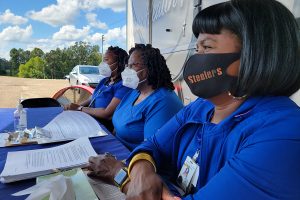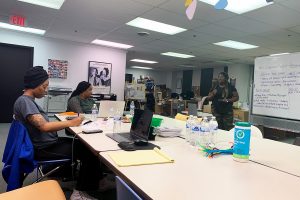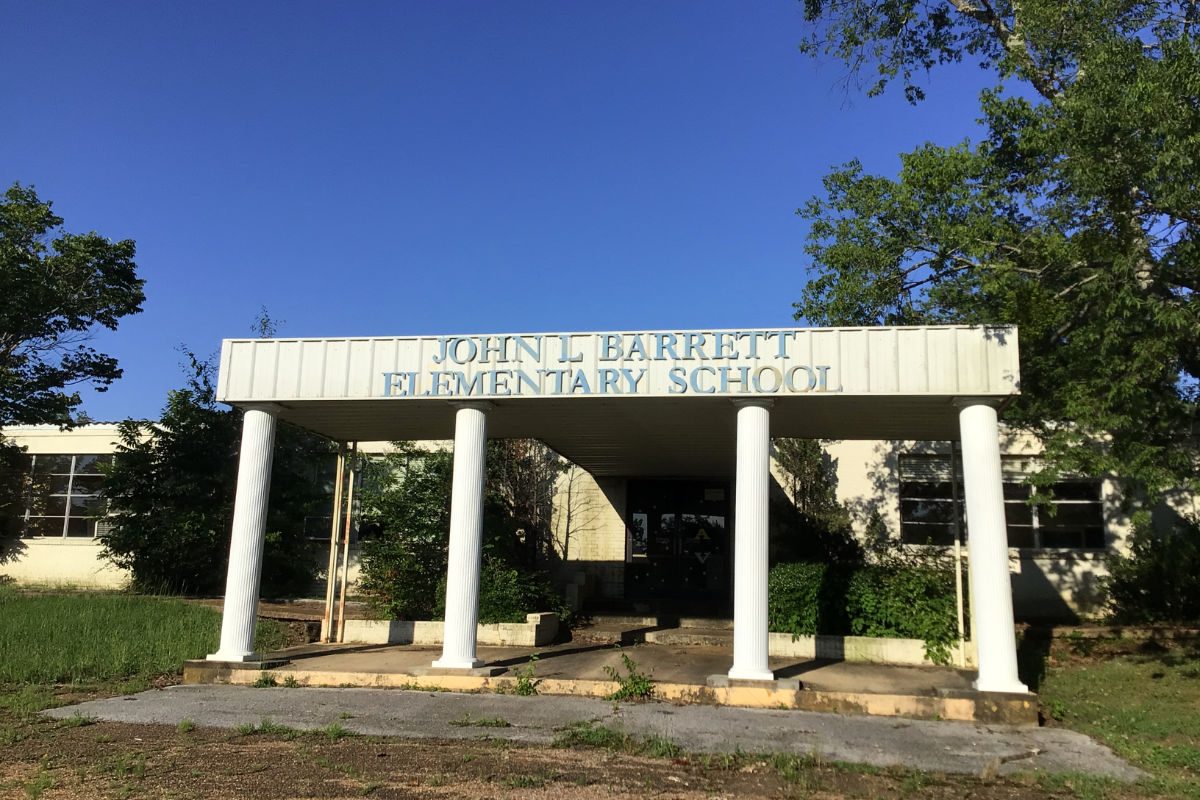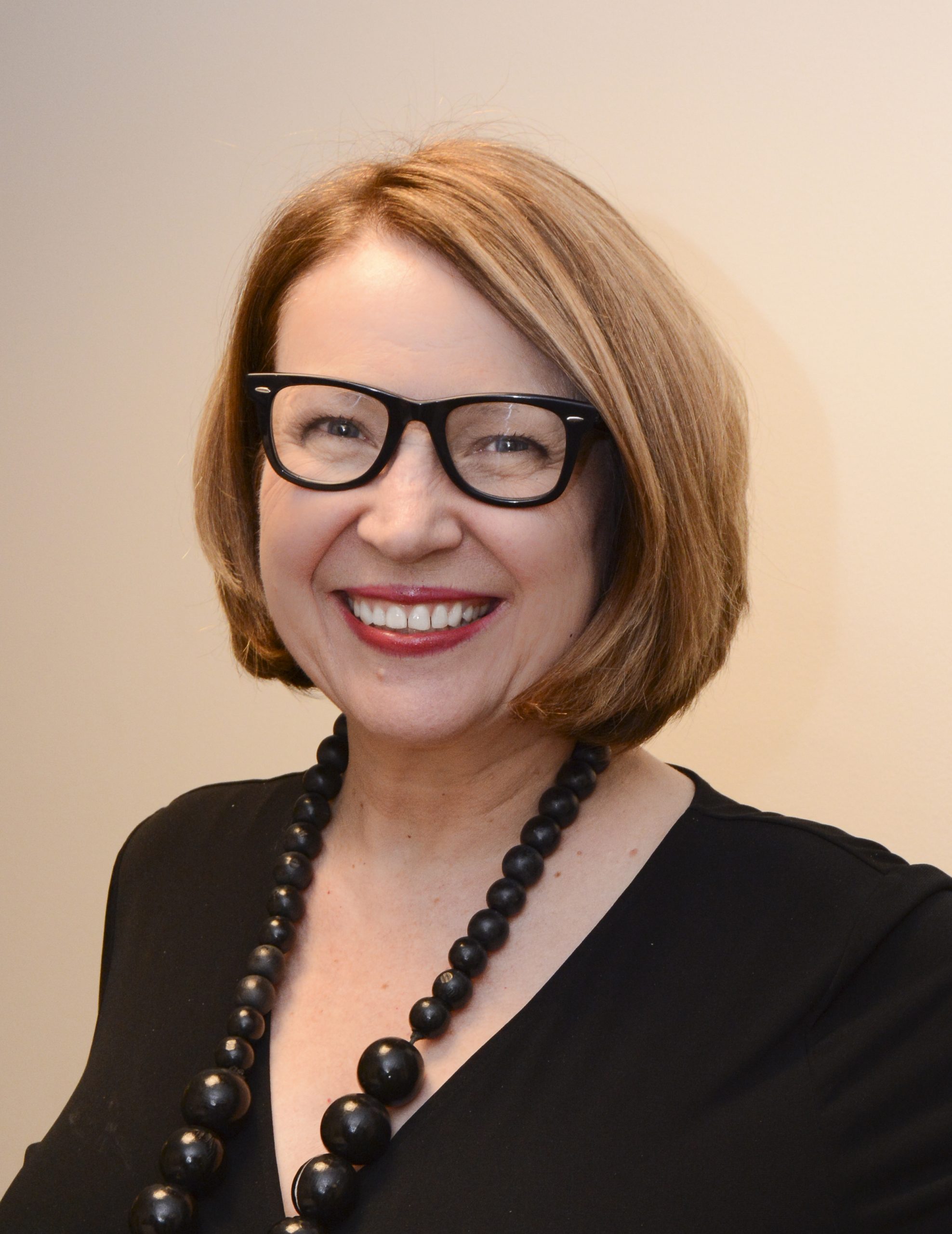I will start my first 2022 note to you with gratefulness. Readers helped us raise just over $163,000 in donations, 16 different matches, pledges and campaign bonuses. This is huge for what we can do for Mississippi in 2022, and we thank you.
What a year. What a life. What a first 21 months of running this publication. In many ways, creating and growing the Mississippi Free Press alongside Publisher Kimberly Griffin into a staffed-up, full-fledged, impactful, award-winning newsroom this past 21 months has been a blur. It’s been filled with pandemic heartache, anger at leaders who won’t lead and put public safety first, and the fear we all share of getting sick or losing family members to COVID-19 or in another way with the unvaccinated’s pressure on hospitals and staff.
But the last 21 months have also been exhilarating and wonderful and inspiring in other ways since our team pulled the trigger on the MFP just as COVID-19 hit the state and quickly grew it into one of the top nonprofit news outlets in the nation. As we went home, we had to report on the pandemic, we knew. The original startup team of native Mississippians then—Kimberly, Azia Wiggins, Ashton Pittman, Kristin Brenemen and Cristen Hemmins—have decades of institutional knowledge about our home state, and we needed to help lead coverage and, especially, ask the hard questions.
As the state went into crisis mode, we went into crisis-reporting mode.
‘Find Out Why They’re Falling in’
The MFP startup team knew instinctively that disparities would make a health crisis worse on communities that already face systemic barriers and inequities. That was a no-brainer. But we also knew it was our job to bring those disparities to the forefront in a state where neither leadership nor existing media had done a good job of it, certainly not consistently. That also meant only hiring people who share these goals and love of Mississippi and Mississippians—and respect the need to report both the deep, difficult causes and potential solutions, not just a daily political tick-tock from the usual suspects in the halls of power.
This week, after the loss of hero Archbishop Desmond Tutu, I saw his words shared on social media: “There comes a point where we need to stop just pulling people out of the river. We need to go upstream and find out why they’re falling in.”
The urgent need to go upstream in Mississippi and America—and the refusal of many in politics and media to do so—is why the Mississippi Free Press exists. We don’t do stenography or horse-race/red-blue gamer reporting. We are here to ask “why.” Why does Mississippi stay on the bottom? Who does it benefit? Who do current policies hurt and push down? How can we change it? What vital history is covered up so Mississippians either leave or don’t take action because they’ve believed lies designed to prop up a powerful minority that controls both the narrative and the resources, others be damned?

This new approach to Mississippi (and most U.S.) journalism is what at the MFP we call “Mapping Mississippi.” Our journalists—who were all born and raised here, other than fabulous Nigerian reporter Kayode Crown—are going county by county focused on finding and reporting buried truth, as well as the results of it. We’re all sick and tired of being fed up with lies and distortions that keep our people divided and conquered. MFP journalism doesn’t give a damn about partisanship; we’re here to find and tell the truth no matter where it lands on a fake political spectrum. That makes some uncomfortable or angry, but we don’t care.
And our belief was right: The people want what we offer. We didn’t launch with deep pockets—and we had more like hundreds in the bank than millions. We now are growing ground-up with immense reader support that looks like Mississippi and America.
People of all races and backgrounds and ages and political beliefs—and so many women—are opening their pockets to grow the MFP. You evangelize for it. You cheer us on. You read, and you share our stories. You’ve made us a household name very quickly. You bring us massive media coverage. You help us raise funds. And we thank you whether you own an air-conditioning repair service in Hinds County or grew up poor in Pike County and are now nominated for a Golden Globe.
Not Here to Prop Up Exclusive Wealth Class
MFP is not here to prop up or appease the exclusive wealth class. It’s for all the rest of us (including the wealthy who reject the exclusive and controlling and greedy part of having money). Our journalism is meant to inspire solutions and then public teamwork to make them happen. We’ll bring the kick-ass journalism; the rest of you are the team and fuel to believe and drive the solutions forward.
You really showed up and showed out in this two-month NewsMatch campaign that ended on New Year’s Eve, and we’re going to put your gifts to good use in 2022 (and still welcome latecomers, of course). We’ll use your donations to both keep bringing you investigative, systemic and solutions reporting you just won’t see elsewhere, we promise, and to engage all of you more directly if you’re interested.

Here is how we plan to use your dollars in 2022. You deserve to know.
Hire an experienced news editor (preferably with strong ties to Mississippi) who will manage and edit daily news coverage and cut down my often-12-hour days (can’t do this at age 60 much longer). This enables me to both do more reporting/writing (my first love) and to focus on editing and directing the “Mapping Mississippi” systemic projects. Remember: Hiring more reporters is always diminishing returns without strong editors to direct, train and partner with an inclusive team of reporters. We’re damn good at that at the MFP, as Deputy Editor Azia Wiggins explained in this badass column last week, and this news editor will make us even better.
Ramp up the systemic projects one by one. We have 16 deep-dive projects planned—from race violence to criminal justice to education to a unit to report corruption before state officials belatedly find it—to activate starting in 2022, each with its own microsite and, ultimately, asset and network mapping. We already do great work in these 16 areas, but this will take the work to another innovative level, and we need help funding it. Dig into our inaugural “Mapping” project, a collaboration with our buddies at the Jackson Advocate, at mfp.ms/bwc.
Hire more staff reporters to join Ashton, Aliyah, Kayode and Nick. Our most immediate need is a systemic education reporter to build on freelance journalist Torsheta Jackson’s outstanding Noxubee County work. Her work gives a hint of what is to come. Let’s just say it is a very different kind of reporting about public and private education that does not center around red-blue funding politics at the Mississippi Capitol, which has proved a failure at ensuring equitable public education for all.
Do many more solution circles to add to the ones we’ve done with Black women about COVID-19; voting and precinct access; and media representation in our state. You may know that we believe panel discussions with “experts” at a front table are a dated model and insulting to everyday people that we all need to be listening to instead in circles where everyone is equal. We can’t wait until the circles can go live in towns across the state as we’ve long envisioned.

Build a rockin’ membership strategy for all of you. On New Year’s Day, we officially launched the MFP VIP Club, and its first official event is Jan. 11 with Mississippi author and Lincoln Project senior adviser Stuart Stevens joining Kimberly, me and MFP VIP members in a virtual conversation. If you donated to MFP in 2021 by midnight Dec. 31, 2021, you’re now an official charter member and will get an invite (and links to past exclusive conversations with Aunjanue Ellis and Angie Thomas). We are also designing a creative menu of experiences for members, which will include my popular Shut Up and Write seminars free to members, brainstorming chats with our team and much more. We need your brains and passion in the MFP room regularly; please join us. I promise, it’s a fun group to hang out with. To become a member now, give at least $10 monthly or $100 once a year recurring (pick that option here).
We have multimedia plans and strategies that I won’t say much about now, but members will find out soon and may get a chance to help us think them through based on what you’d like to see. We really do want your creative ideas.
Finally: something near and dear to my heart. Our 501c3 nonprofit, the Mississippi Journalism and Education Group, is now in partnership with the award-winning Mississippi Youth Media Project, a newsroom for teenagers to learn solutions journalism that I started several years back as a W.K. Kellogg leadership fellow. It’s on hiatus for now, but we plan to bring it back to work with MFP journalists and again doing their own systemic journalism sometime in 2022. Read their past work at jxnpulse.com. If you’d like to be involved in some way, or help YMP return for Mississippi teenagers, reach out to me at donna@mississippifreepress.org. YMP will have its own revenue stream, but I wanted to alert you in case you want to help bring it back.
Those are the priorities, but we’re always planning, strategizing, brainstorming and innovating—which most of you know brought us the Institute for Nonprofit News’ Startup of the Year Award in 2021. As we move into our third year, we are focused on long-term sustainability as a nonprofit newsroom showing American media how to be truly inclusive straight from the heart of Mississippi.
Thank you for your support and gifts. You are our lifeblood, and we appreciate each of you.






